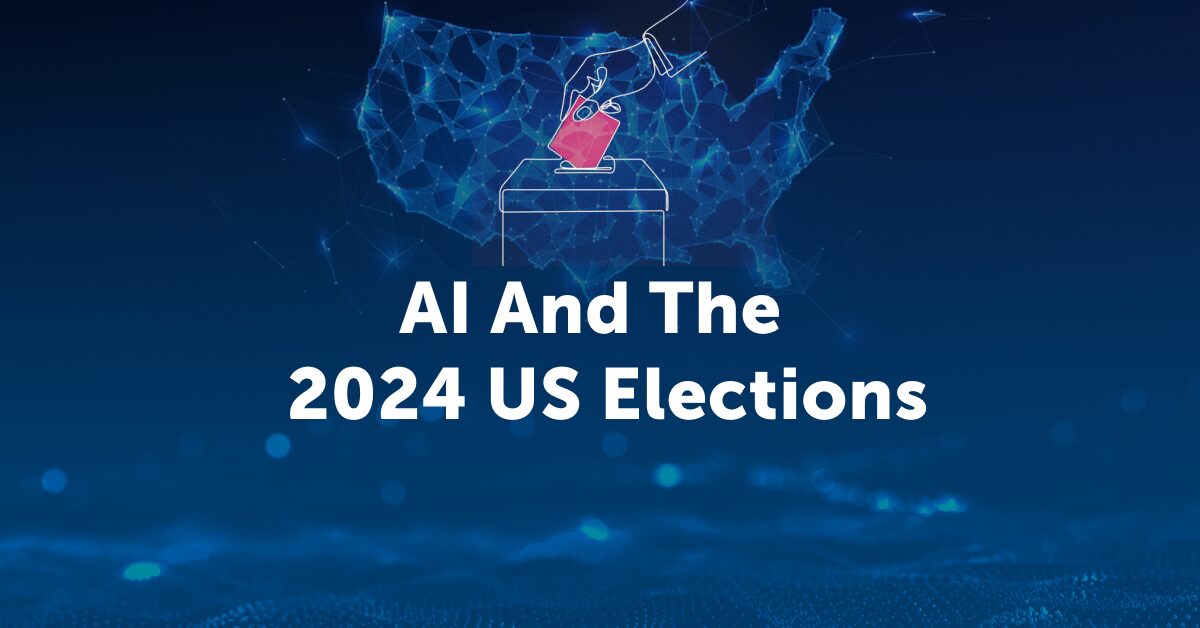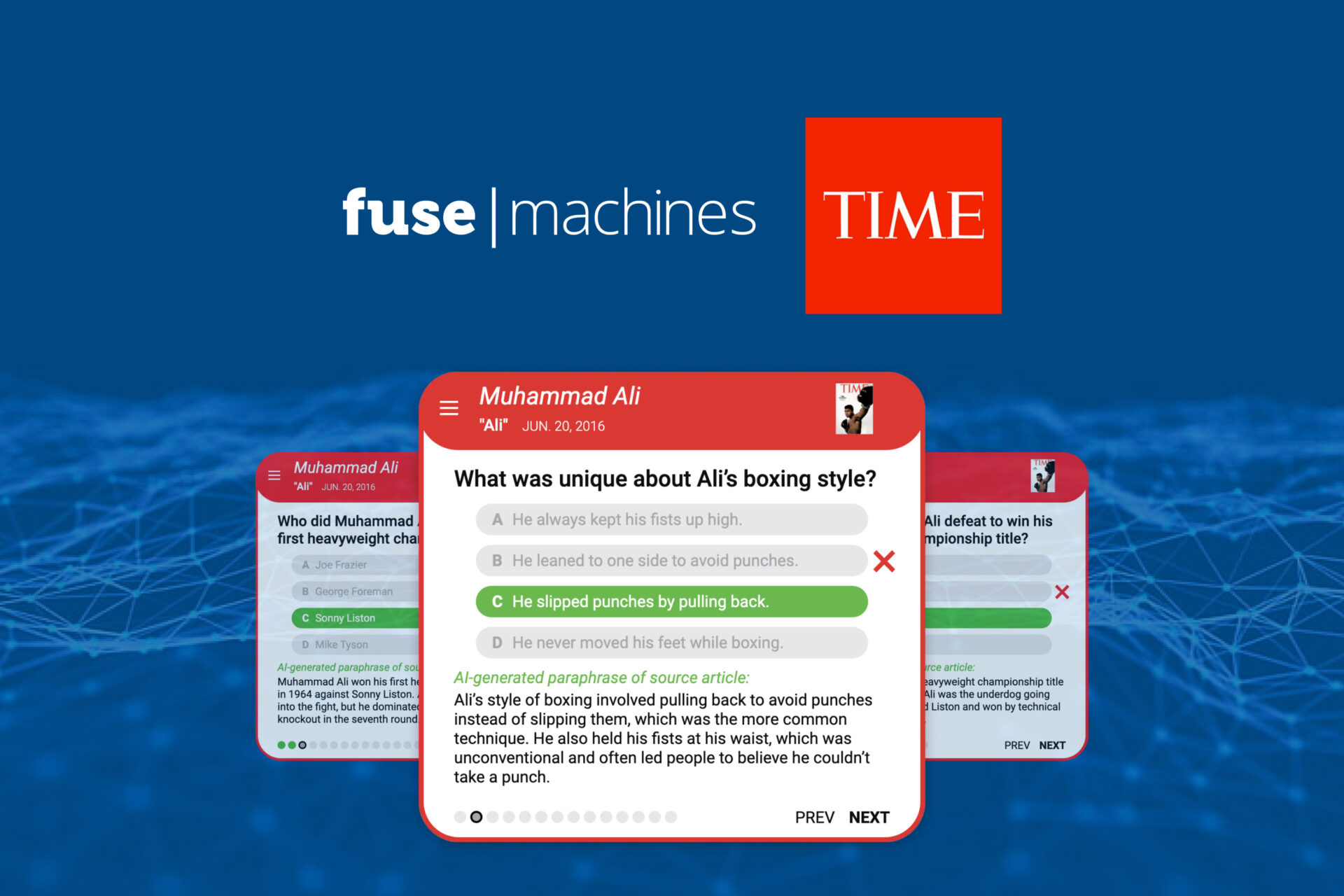AI Education’s Impact on Rural America
The State of AI Education in Rural America
It’s no secret that artificial intelligence is transforming the world in a variety of ways. From yield-boosting agriculture solutions and self-driving trucks to the media we consume on our smartphones, AI drives so much of what goes on behind the scenes of our daily lives.
While individuals, businesses, and governments are exploring AI and ML as mission-critical technologies, unfortunately, AI education is currently centered around cities and highly populated areas. Approximately 57.23 million people (roughly 15% of the nation’s total population) are not equipped with the resources needed to be on the same digital transformation journey as their peers.
A lack of high-quality educational tools, infrastructure, and government support is contributing to the shortage of AI-powered possibilities and talent in rural and underserved communities in the US. Some rural households do not even have access to broadband internet, let alone education around cutting-edge AI technology, otherwise abundant in urban environments.
This needs to change. Here at Fusemachines, we are working with education leaders across the country to provide courses designed for all levels of AI expertise. From high schoolers to working professionals looking to expand their knowledge, we are creating new initiatives to improve the AI education system.
AI Education: Rural vs. Rest of America
According to AI4K12, many states are updating computer education to include AI, creating AI courses, building frameworks for career education, and providing training to help educators become familiar with AI. Some states are working to include AI, while others are developing computer education, but still not considering AI education.
A report from the Advocacy Coalition on computer science education says only 47% of public high schools teach computer science courses, while rural communities are underrepresented.
While certain communities are far behind, AI is not a complete stranger to the classroom. AI technologies have been researched in schools for around 50 years, and the AI education market is expected to reach 6 billion dollars by 2024. Amazon, Google, and Facebook are driving this by investing millions of dollars into the market.
The obstacles for institutions today include alignment on vision, people, process, technology, and data readiness. The top three challenges in implementing AI in higher education are cost, skills, and data.
Fusemachines is pairing with school districts like Putnam County, Florida to help bring AI into the classroom. Dr. Rick Surrency, the superintendent for Putnam County said “Why we’re doing AI and STEM in Putnam County is we want all kids, no matter what zip code they live in, to have the same access as any other child in the United States,”. This is just one example of how Fusemachines is helping to break down the barriers between AI education and certain regions of the US, making our services and expertise accessible to all.
Where Today’s Talent Resides
The most recent Stanford AI Index report shows that AI has infiltrated nearly every industry. Furthermore, job listings that include the need for AI skills have grown five-fold since 2013.
Gartner found that over half of CIOs find the talent gap the most significant challenge in their organization. To build AI talent across underserved America, we must first identify the jobs in AI that are in demand and the types of opportunities available in specific industries. Unfortunately, most jobs in AI are currently only available in large cities such as Silicon Valley and New York, but the need for AI stretches far beyond these locations.
More than half of the American AI workforce was born abroad, along with about two-thirds of current graduates in AI-related fields. Tens of thousands of international students yearly receive degrees in AI-related areas in America.
Fusemachines provides courses for people all over the world from the comfort of their own homes. We offer a range of courses for people of all levels of expertise. From complete beginners to earning a Microdegree™ in Machine Learning, Deep Learning, Computer Vision, or Natural Language Processing we offer a wide range of courses perfect for anyone looking to further their career with the power of education in AI.
Delivering AI Education in Rural America Can Help Fight Poverty
Thanks to remote work, AI engineers are no longer limited to the opportunities in their immediate vicinity. Rural individuals can now access education and jobs that reach beyond local limits, opening up a world of opportunities and chances at gaining momentum towards desired career paths.
With the right tools and skills, students located in rural areas not only have a chance to become successful in one of the most highly-paid industries, but they can also bring their success back home, creating lasting economic impact.
To successfully identify ways to implement AI education in rural America, we first need to ascertain all the key players who stand to benefit from AI training.
Let’s break down these specific sectors and education programs in rural America:
Key Sectors that will Benefit from AI Education
There are three key sectors for a balanced distribution of AI talent and work opportunities in underserved communities: education, business, and government. Each must witness the benefits of AI training first-hand to make an impact with education programs in their respective communities.
The Education Sector
Education is associated with higher earnings and better economic status in both rural and urban areas, according to research showcasing findings from the U.S. Bureau of the Census’ American Community Survey. These findings suggest that the education sector would greatly benefit from AI training. Everyone from students, parents, teachers, school administrators, public school representatives, and superintendents stand to benefit from tailored training programs that complement their respective AI education journeys.
AI education should advance through higher education, community colleges, universities, and graduate programs as early as primary school. Educators can leverage AI training to help foster new generations of AI experts.
Partnering with New Jersey’s Mercer County Community College (MCCC) Fusemachines is working to deliver Artificial Intelligence for Professionals through an industry-agnostic training program curated for working professionals. These courses will provide a new AI talent pool in Mercer county for businesses and local industries to hire from.
The Business Sector
While AI is becoming part of global business advancement and transformation strategies, it remains concentrated in urban or abundantly resourced areas.
According to the U.S. Chamber of Commerce and Amazon, 38% of rural small businesses say they can’t hire talent with the right digital skills in their area. The study also found that nearly 41% of rural small businesses agree that policymakers should create incentive programs making it easier for them to incorporate digital technology into daily operations.
The focus should be on generating a talent pool and AI-related career opportunities so people can work without having to leave their region. Training cannot be conducted in one location and requires equal buy-in from trade associations and consortia representing and lobbying for specific businesses or industries within underserved markets.
The Government Sector
The power of AI education to transform communities can only be realized if leaders, educators, and decision-makers appreciate its potential. This includes government officials, regulators, legislators, elected officials, local government bodies, and state-level and federal-level decision-makers.
Enabling government officials to witness what goes into building AI education and ML models and the role data sourcing plays in it will allow them to appreciate AI’s full potential in their communities.
Bottom Line
Artificial intelligence is crucial to the development of rural and underserved communities. Arming these communities with the tools and resources to nurture AI talent pools in industries that dominate in rural areas. Creating AI education and training opportunities in rural and underserved communities will ensure an empowered AI workforce and much-needed economic empowerment.
Ready to explore how Fusemachines and AI education can help your business? Click here
Want to learn more about Fusemachines? Click here


